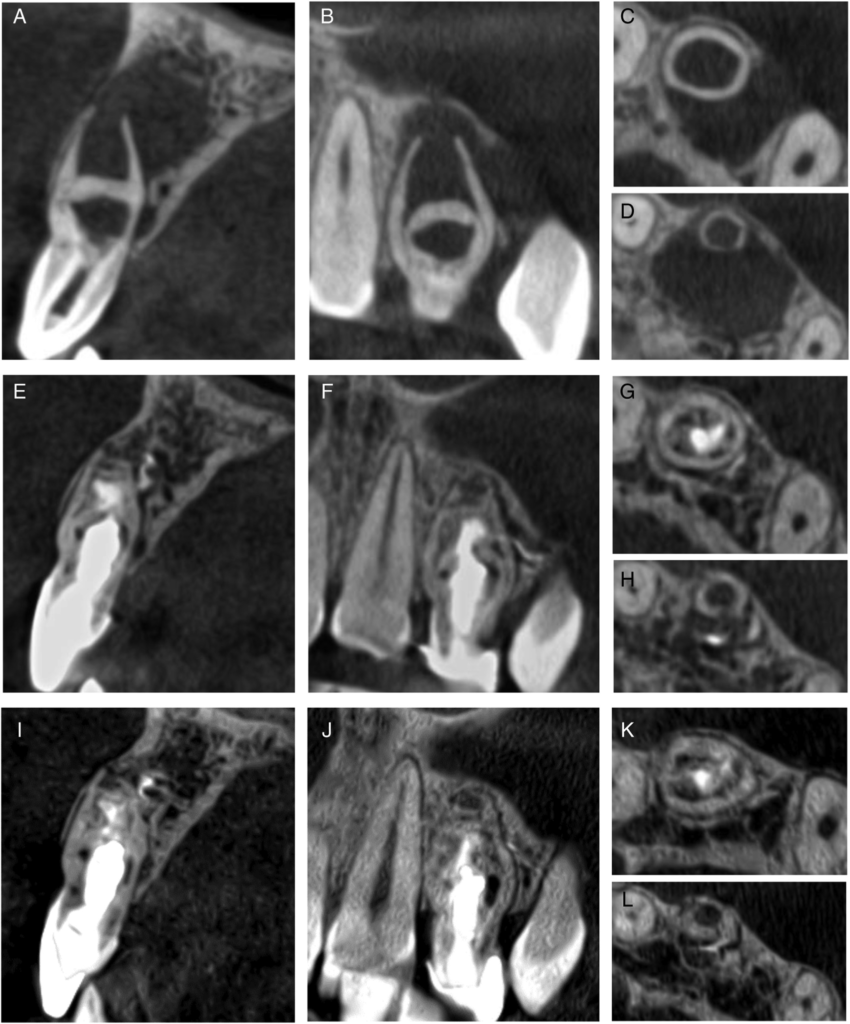
ABSTRACT
Dens invaginatus is a developmental dental anomaly that can predispose the tooth to pulp
and periradicular disease. Management of this condition can be challenging because of
anatomic and microbiologic issues. This case report describes the regenerative endodontic
treatment using a strategic antimicrobial protocol for management of an immature maxillary
lateral incisor with type-II dens invaginatus associated with apical periodontitis in a 13-year-old
patient. The tooth presented with a complex anatomy and was associated with an active sinus
tract. Because the true root canal was not negotiable in its coronal part due to the presence of
the dens invaginatus, the closed end of the invagination (pseudocanal) was perforated to
permit access to the apical segment of the true root canal for cleaning and disinfection. Both
the invagination and the true canal were treated using an antimicrobial regimen based on
chemomechanical preparation with sodium hypochlorite irrigation, supplementary
disinfection with passive ultrasonic irrigation and interappointment calcium hydroxide
medication. After 2 exchanges of calcium hydroxide medication, the sinus tract did not
disappear, then the antimicrobial protocol was changed to include an antibiotic solution for
irrigation and antibiotic paste for intracanal medication. After signs and symptoms
disappeared, regenerative endodontic treatment was performed by inducing blood clot
formation within the root canal. The coronal canal segment including the invagination was filled
with Biodentine. Follow-up including cone-beam computed tomography examination
showed complete healing of the apical periodontitis lesion and mineralized tissue formation at
the apical portion of the true root canal. (J Endod 2024;-:1–6.)

